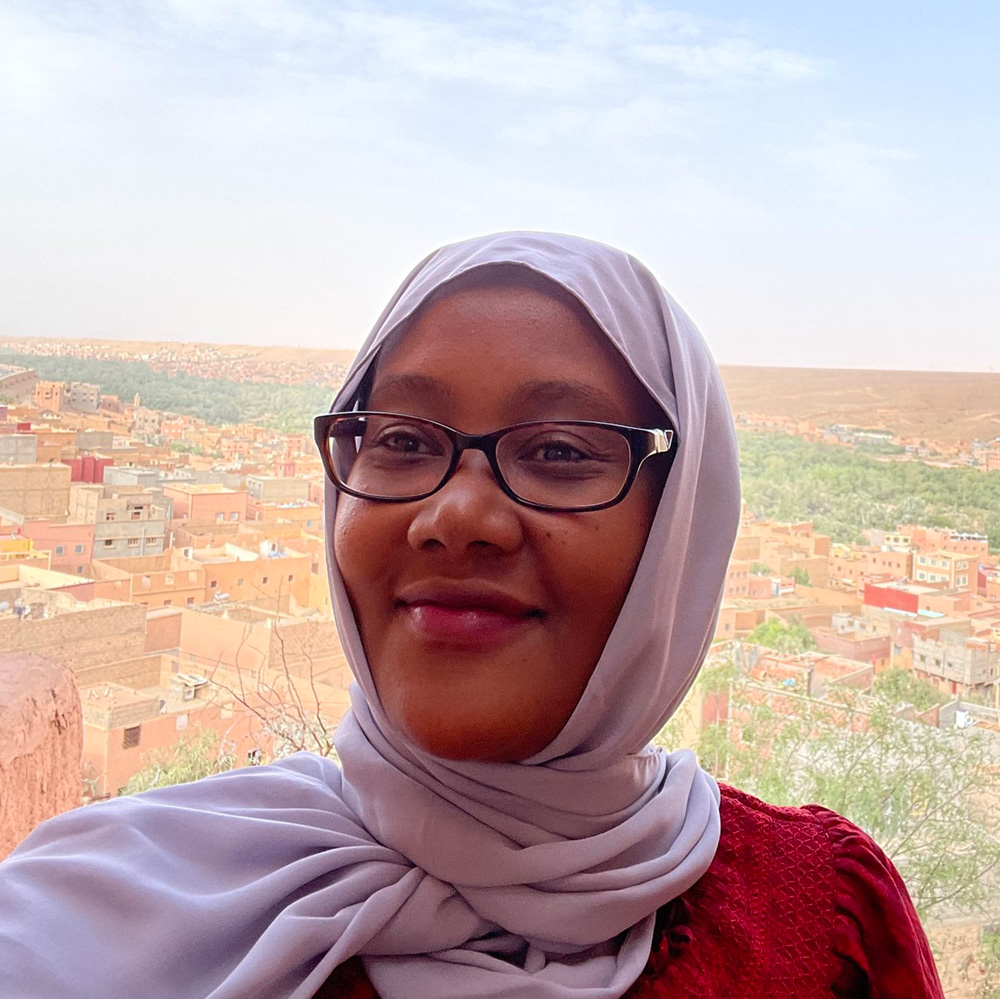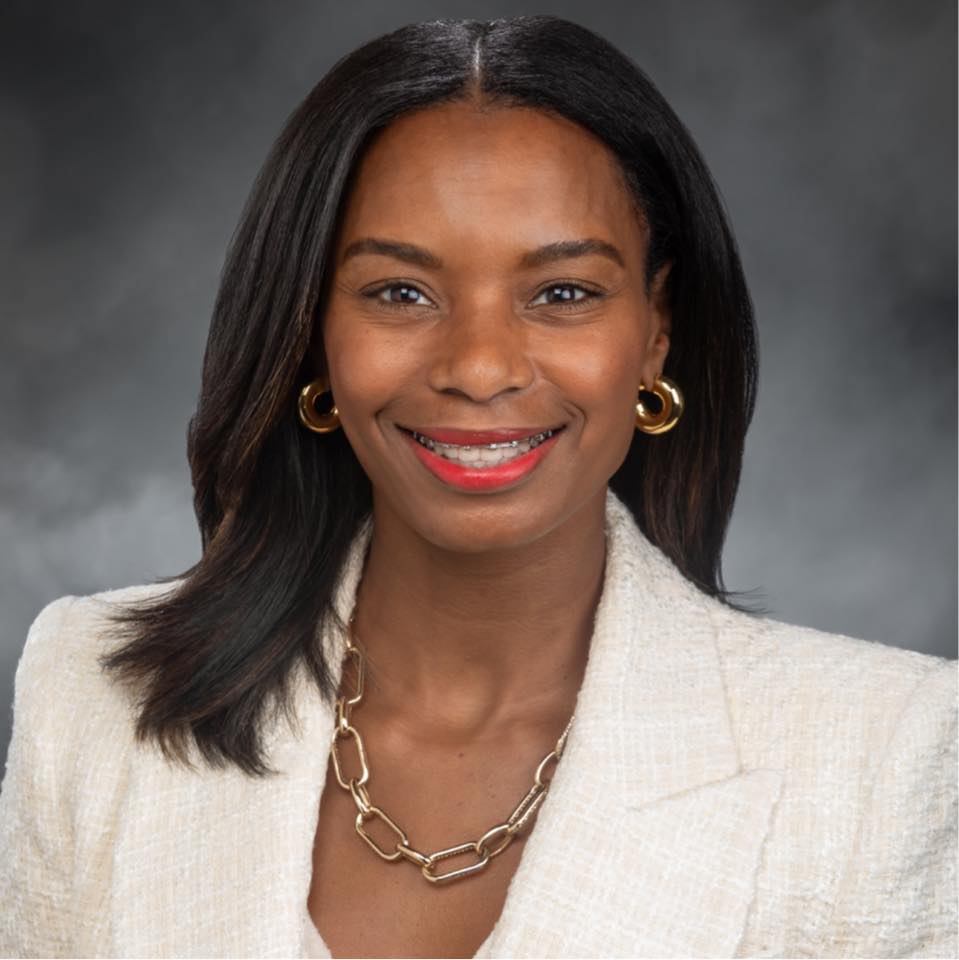Faisa Farole is the first Black midwife to own and operate a freestanding birth center in the state of Washington. Federal Way Birth Center (FWBC) was founded as a place not only where Black women can give birth safely surrounded by people who share their identity, but also as a place where aspiring Black midwives are mentored and trained. With the creation of the center, Farole hopes to address problems she has encountered throughout her nearly two decades spent in the perinatal sector: Black women are dying, and so few midwives and doulas look like her.

Black women experience trauma and discrimination in maternal care, including having their pain disregarded. The medical racism that Black women experience contributes to disproportionately high rates of maternal mortality. Just look at the stats: Black women are three times more likely to die from pregnancy and childbirth-related causes than white women according to the Centers for Disease Control and Prevention (CDC). Shockingly, the CDC also reports that 80 percent of pregnancy-related deaths are preventable.
Numerous studies show that access to midwifery and doula care can improve maternal health outcomes. While their roles are different, both doulas and midwives offer vital support before, during and after birth that can combat the Black maternal health crisis. Midwives are trained medical professionals who provide prenatal care, monitor physical and emotional health, and perform labor and delivery in a variety of settings including hospitals, homes and birthing centers. The midwifery model of care is holistic and client-centered, and contributes to positive birthing experiences. Doulas are advocates that ensure clients’ needs are respected, and they make active, informed decisions about care. Doulas can create birthing plans, offer techniques for pain management during labor, and provide continuous physical and emotional support. Their presence is proven to improve maternal health outcomes and help birthing people feel more at ease.
Being paired with a birth team that is reflective of background, values and culture is important, and helps to build trust and contribute to more equitable care. For Black women, that connection can be lifesaving. Yet, only five percent of midwives in the United States are women of color and according to some estimates nearly ninety percent of doulas in the United States are white.
Niambi Bloom (LSW) is one of only two Black birth doulas in Colorado Springs. She first discovered this maternal care desert while searching for her own doula during her first pregnancy. She found only one Black doula based in Denver, more than an hour away. Ultimately, she chose a local doula and had what she describes as a “textbook home birth” where she was surrounded by a midwife and a doula who she felt genuinely cared about her. Bloom chose to become a birth doula to help positive birthing experiences like her own become the norm. She also wanted to give other Black women what she did not have, care from a Black doula. Bloom now helps to lead training sessions about maternal health disparities to new groups of prospective doulas. It was during one of these sessions that Bloom met a Black woman who was training to become a doula in Colorado Springs. Now, the two work together but still have not found other Black birth doulas in the area. According to Bloom, “It’s just us.”
Building a more diverse maternal care workforce is essential to providing more equitable care, and it’s a necessary component to combating Black maternal health disparities, but there are barriers that prevent both recruitment and retention of Black birth workers. Tyla Leach, a labor and delivery nurse and childbirth educator, believes a major barrier is the sheer amount of money, time and energy it costs to become trained and remain in practice. A national survey found that almost all doulas find their work to be emotionally fulfilling, but few consider it to be financially rewarding. According to Jazmin Williams, a full spectrum doula and the Founder of BLKBRY, “Birth work is not a revenue-based service. It is not a revenue-based profession. We aren’t getting rich off supporting our community…But we know the necessity of having a doula that is reflective of your background, reflective of your culture that knows how to become an advocate with you… to amplify your voice rather than talk over for you.” She added, “We do provide a lot of sliding scale assistance and I’m pro bono, but we also have families of our own and that’s how we came into practice, so we really have to look at our care pricing that is also sustainable for us.”
The majority of doulas earn less than $5,000 per year, and only about 10 percent of doulas received third-party reimbursement for their work. Most private insurance providers and Medicaid programs do not cover doula care, which often means clients can pay up to thousands of dollars out of pocket for these services. The CDC, estimates that over 60 percent of Black mothers use Medicaid for their deliveries. Failure to include Medicaid coverage for doula care makes a vital resource to combat maternal mortality largely inaccessible for those who are most at risk. A growing number of states are pushing for Medicaid reimbursement for birth doulas to address the problem. According to The Washington Post, “the goal of Medicaid coverage of doula care [was] threefold, according to advocates: support people who are giving birth, provide culturally congruent care and compensate doulas fairly for their work.”
Necessary Policy Change: How They Did It
In 2022, Washington lawmakers passed legislation to establish birth doulas as a health profession in Washington state, creating a process for state certification and thus a pathway for Medicaid reimbursement. The success of HB 1881 is as a national model for how legislators should directly involve and advocate with birth workers.
- The Doulas for All Coalition, a Queer, Trans, Black, Indigenous and People of Color-led (QTBIPOC) organizing group bolstered by Surge Reproductive Justice, was instrumental in the creation of the bill and worked in lockstep with legislators to lobby for its passage. Members of the Coalition shared their perspectives to ensure the bill combats harm, addresses community concerns, and that the certification process does not shut out doulas who are already practicing.
- They were instrumental in creating a certification process that is voluntary, meaning doulas who choose not to become certified are still able to practice and support their communities.
- They also advocated for a competency-based model for certification and training that values ancestral knowledge, and differs from courses offered at large certification organizations that have historically centered the perspectives and experiences of white women.
Sage Maenad Kissiah-Grove, a member of the Coalition, and a birth and postpartum doula, credits HB 1881 with establishing culturally congruent standards in doula training and opening up the certification process “for people who come from all kinds of backgrounds in birth work, people who have been trained ancestrally, people who have self-trained and people who have not trained through these big organizations.” She added, “For their training to be from people who look like them and who have their same experiences is huge.”

Washington State Senator T’wina Nobles, a Black woman and mother of four, worked alongside the Doulas for All Coalition to rally support for the legislation and to create a clear pathway for its passage in the State Senate. She believes that doulas “really are the leaders” in this work, and that people who are most impacted and most connected to birth work deserve their voices to be heard. Nobles sees herself as an amplifier who focuses on “allowing the experts, the doulas and midwives and folks who do the birthing work, to lead and let me know what they need.”
This year, Nobles plans to introduce legislation that builds on the success of HB 1881 with Senate Bill 6172, which will allow birth doulas up to $4500 in Medicaid reimbursement rate, the highest in the country.
What’s Next?
Federal Way Birth Center celebrated its grand opening in November. For Faisa Farole, it is just the beginning. She envisions a future in which FWBC will serve as a community hub and provide support beyond childbirth. “I want the center to be not just a place where we are providing mentorship to aspiring Black midwives, but also a place where the community can come and get lactation education and childbirth education,” said Farole.
She added, “I want it to be something that the community is using, and not a place where the doors are closed.” She also sees the center working in collaboration with nonprofit organizations who support BIPOC (Black, Indigenous and People of Color) communities, and she already has spoken with the Center for Indigenous Midwifery about teaching in the space.
Farole is also the founder and executive director of Global Perinatal Services (GPS), a nonprofit that provides free community-based doula services for Black, immigrant and refugee families. She also has trained more than 100 doulas who combined speak more than 17 different languages. She sees her own nonprofit working closely with the center, and offering GPS clients the option to give birth at the center if they choose. Farole is optimistic about the future of her center, as well as other initiatives that will help more Black women “answer the call” and provide vital support for their communities.
Jazmin Williams was fortunate to be on a Black birth team with a Black birthing person, Black midwife, Black doula and a Black pediatrician. “It’s rare to have an entirely Black birth team…It’s an incredible experience and one that I’m thankful for,” said Williams. “It fills my heart to know that is possible, and that we can do that.”
All Black women deserve a birthing experience where they feel respected, their choices are honored, and their lives are protected. There is beauty, joy and strength in birth, and those experiences should be the norm. What is happening in Washington is cause for celebration and hope. We can support Black birth workers and center them in legislative advocacy. We can build a more diverse maternal care workforce and ensure doulas and midwives are paid living wages. We can save the lives of Black women and create safe, healthy birthing experiences that are rooted in empowerment instead of trauma.
The Federal Way Birth Center is the first Black owned freestanding birth center in Washington state. It is the first of its kind, but hopefully it will not be the last.

Elise Anderson
Elise Anderson is a recent graduate from the Department of Urban Policy and Planning at Hunter College where she earned her M.S. in Urban Policy and Leadership. She is also the Communications Manager at Vote Mama, the leading source of research and analysis about the political participation of mothers. Anderson worked previously as a congressional press secretary and campaign manager, and has a passion for policy and supporting working families.


